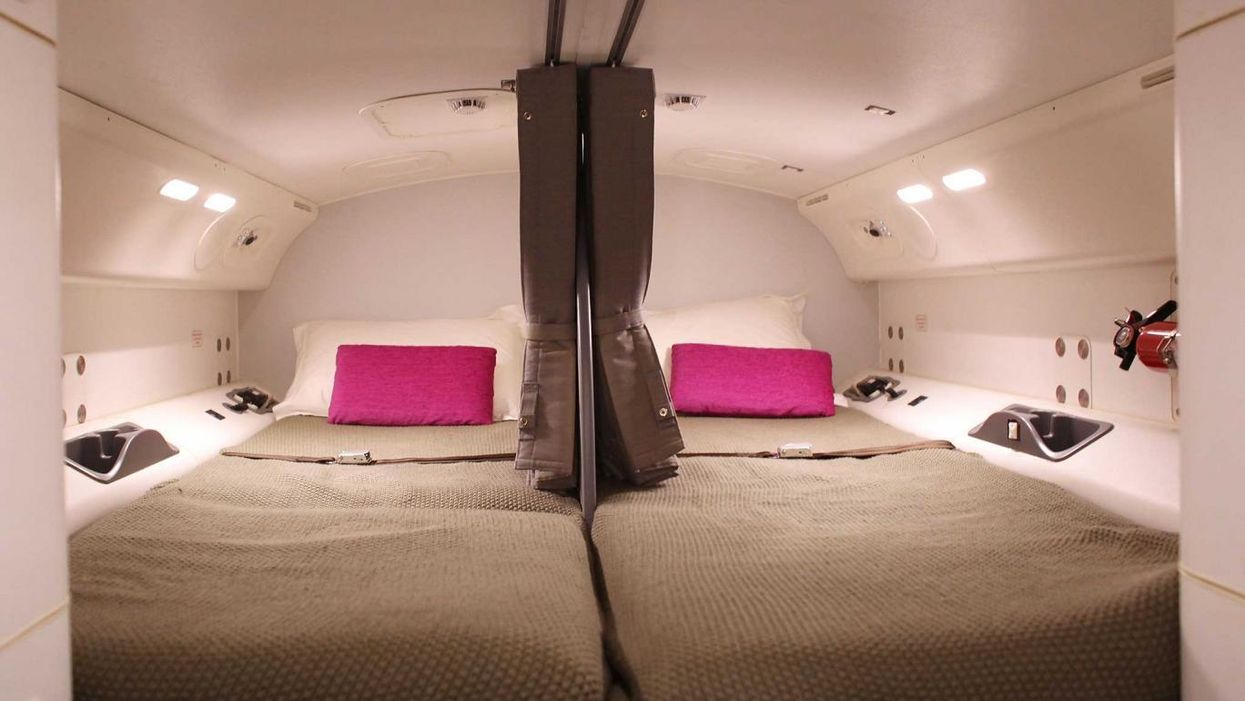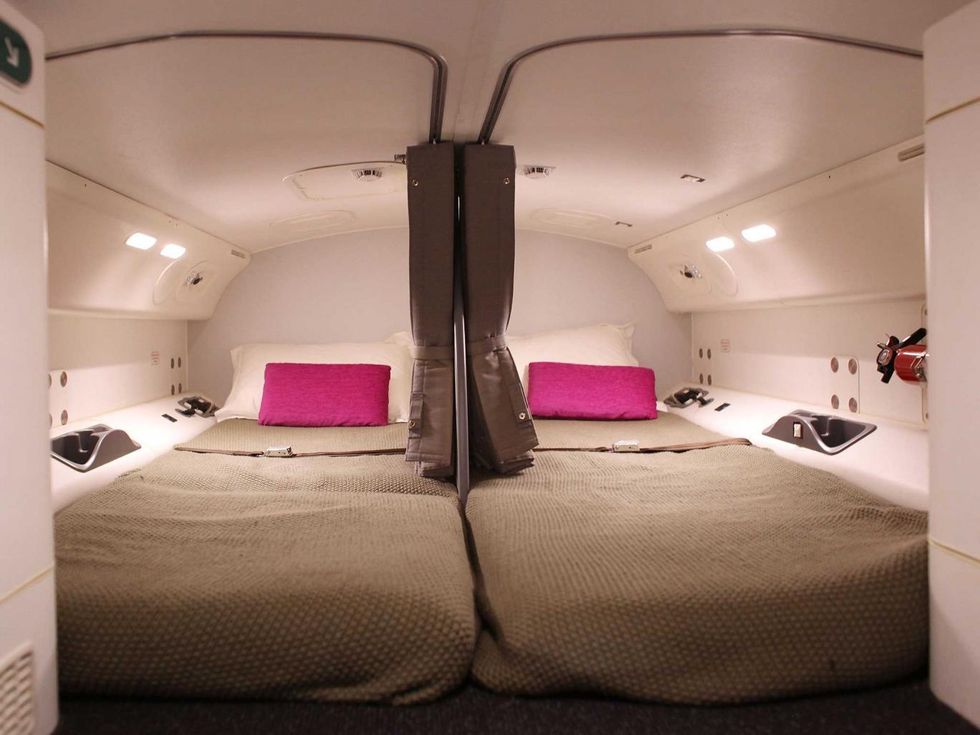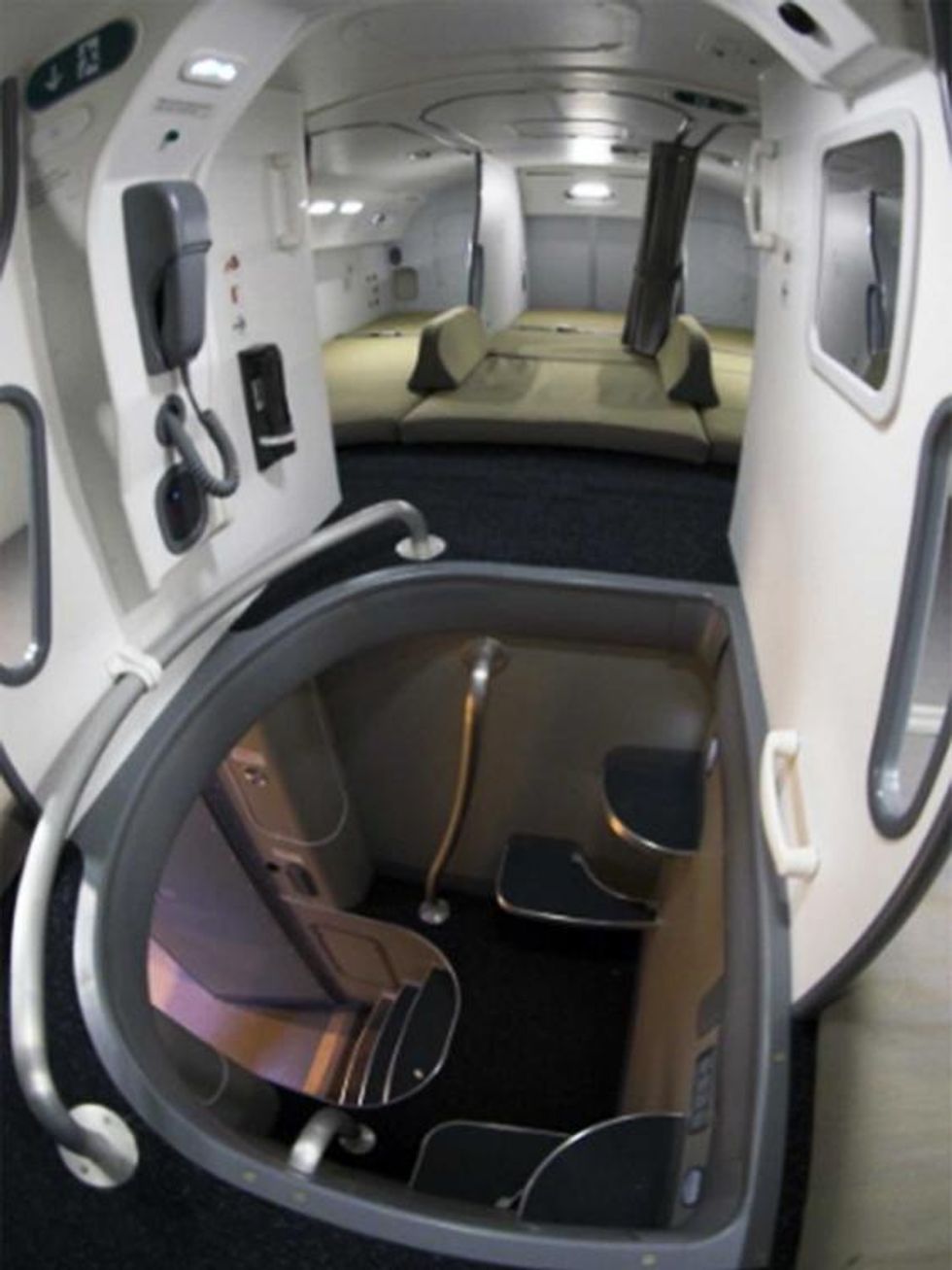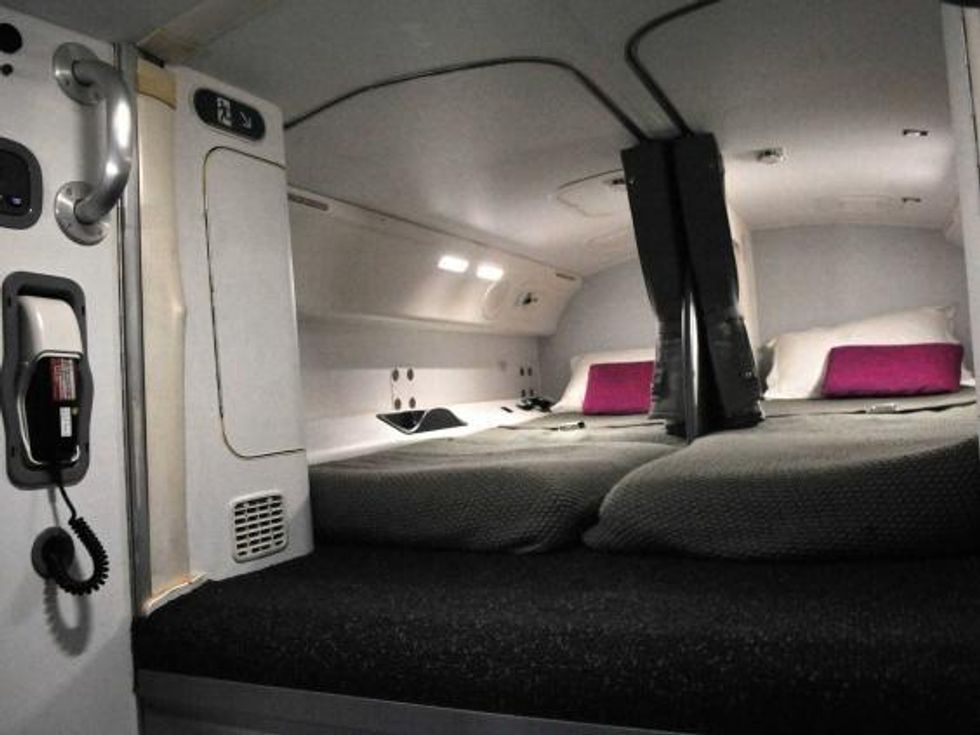News
Alexandra Sims
Aug 05, 2016

The hidden areas where cabin crews rest when not pacing up and down plane aisles have been revealed in a series of fascinating photos.
Images of concealed interiors on select Boeing 777 and 787 planes show staff sleeping quarters with beds, mattresses and curtains, accessible only by secret staircases, hidden behind security-coded doors.
Some of the sleeping areas, known as Crew Rest Compartments (CRC), are even hidden behind entrances that resemble overhead luggage bins.
The size and position of the bedroom areas differ on each plane, but typically they are placed behind the cock-pit and above first class.
The crew rest area on a Boeing 787 Dreamliner (Picture: Getty)The Boeing 777 usually has between six and 10 beds fitted with seatbelts in case flights are hit by turbulence.
Storage for attendants’ belongings is provided with the beds and some attendants may also be offered a TV.
The 777 model also offers a separate area for pilots, which contains two beds, two business seats and, on some airlines, a lavatory area.
"On the Boeing 747's it's all bunk beds and on the 777 it feels like you're in a coffin,” said the crew member.
"They are cramped but you can make it comfortable if you get a blanket or pillow.
"I always take my own pajamas and I make a little bed up."
Previously, pilots revealed which airports they thought were the worst in the world, with London’s Heathrow, California’s LAX and France’s Paris Charles de Gaulle all fairing badly.
Nepal’s Tribhuvan International Airport in Kathmandu was dubbed a “glorified bus station running at 600 per cent capacity,” by one pilot.
Top 100
The Conversation (0)
















